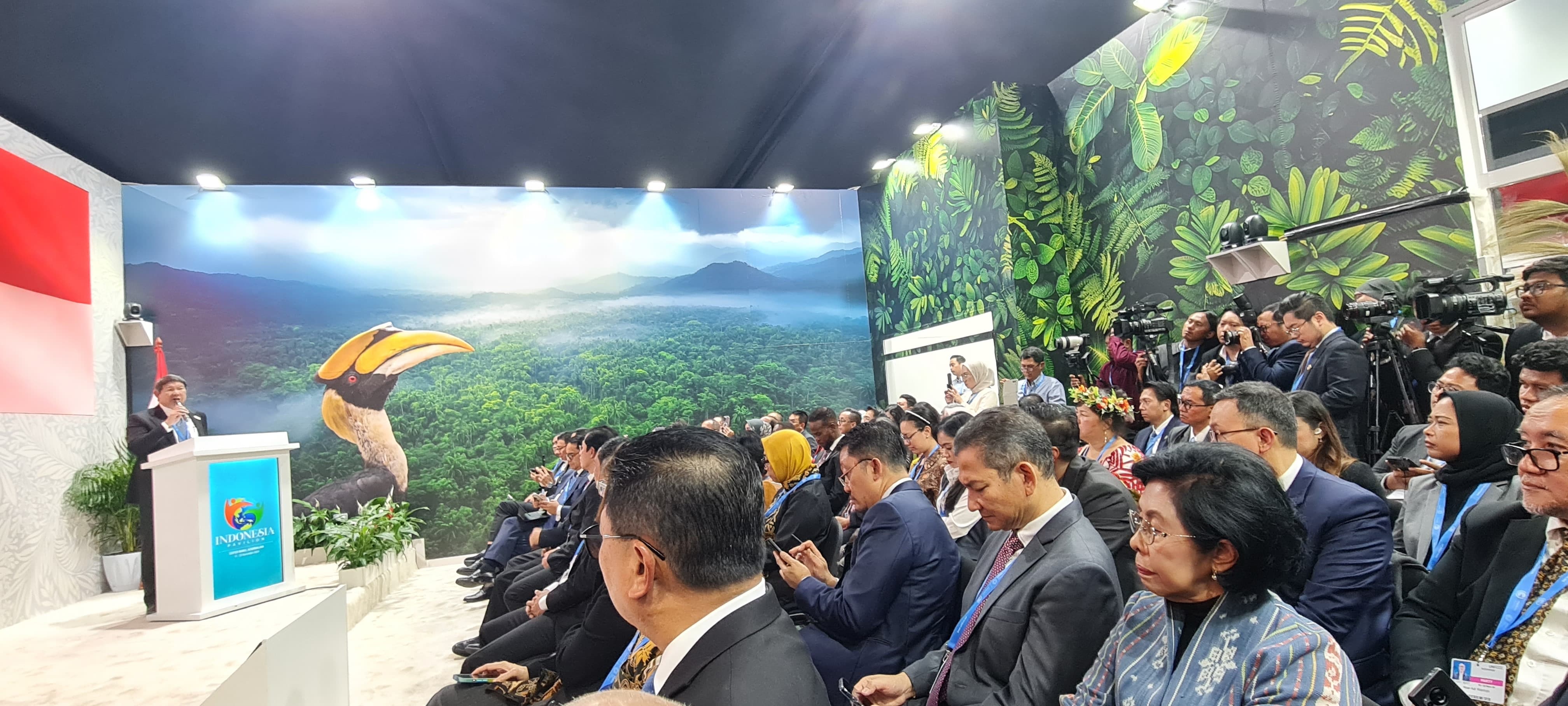
Azerbaijan, November 11, 2024 – The Special Envoy of the President for the COP 29 UNFCCC Climate Change Conference, Hashim Djojohadikusumo, reiterated President Prabowo Subianto's administration's commitment to the Paris Agreement on climate change mitigation.
Several programs have been prepared to strengthen climate change mitigation efforts, including the development of new and renewable energy (NRE), the utilization of Carbon Capture and Storage (CCS) technology, and the rehabilitation of 12.7 million hectares of forests to support food security.
"Pak Prabowo is committed to continuing the agreements made by previous administrations," Hashim stated during the opening of the Indonesian Pavilion at COP 29 UNFCCC in Baku, Azerbaijan, on Monday, November 11, 2024.
At COP 29 in Azerbaijan, APP Group also reaffirmed its global commitment as a driver of change in addressing the climate crisis through green energy transitions and sustainable practices. Suhendra Wiriadinata, Managing Director of APP Group, emphasized the company’s vital role in promoting collaborative climate action between the public and private sectors to create a greener and more sustainable future.
“Addressing climate change is not the responsibility of a single sector or country—it’s a shared challenge that demands synergy across all sectors,” Suhendra stated. “APP Group is ready to continue innovating and investing in green solutions that not only support national decarbonization targets but also contribute significantly on a global scale.”
Turning Challenges into Solutions Through Green Energy Transitions
As a company in the pulp and paper industry, APP Group has made significant strides in energy transition. Initiatives such as converting to biomass energy and utilizing solar panels at production facilities have enabled the company to reduce its reliance on fossil fuels. To date, the OKI mill has sourced 98% of its energy from renewable sources, contributing to a 11% reduction in carbon intensity since 2018.
“These measures are part of our vision to achieve low-carbon and sustainable production processes,” Suhendra explained. “We’re not only focused on reducing our emissions but also on creating a business model that other industries can follow in transitioning to a low-carbon economy.”
Empowering Communities
Suhendra also highlighted the importance of community-based sustainability, demonstrated by APP's holistic approach to forest management and community empowerment. The Desa Makmur Peduli Alam (DMPA) program has empowered local communities by creating economic opportunities through SME development and training in responsible natural resource management.
“Effective forest protection is impossible without the involvement of local communities,” Suhendra said. “The DMPA program is not just about preserving nature—it’s about fostering economic independence for communities living around our concession areas. By enhancing their welfare, we strengthen our commitment to long-term sustainability.”
Minister of Forestry Raja Juli Antoni emphasized this sentiment during the opening of the Indonesian Pavilion, stating, “We must preserve and protect our forests as sources of prosperity for the people.”
“I believe that through collaboration, responsibility, and solidarity, we can protect and conserve our forests while implementing policies that bring blessings for future generations,” he added.
Inspiring Collective Action for a Better Future
APP Group views its participation at COP 29 as an opportunity to inspire and promote collective action that accelerates decarbonization initiatives across industrial sectors. Suhendra expressed hope that APP’s presence at COP 29 would strengthen cross-sector collaboration and encourage other companies to join the global green movement.
“APP Group is committed to playing an active role in climate action and creating a greener future. We believe that through collective action, we can overcome the challenges of climate change and build a better world for future generations,” Suhendra concluded.
Meanwhile, Minister of Environment Hanif Fasiol Nurofiq outlined three key objectives of the Indonesian Pavilion:
1. To showcase Indonesia’s climate actions to the world as part of its soft diplomacy efforts.
2. To highlight Indonesia’s collaborative climate control programs involving the government, NGOs, the private sector, and local communities.
3. To establish a platform for exploring new ideas and building partnerships to strengthen Indonesia’s climate resilience.